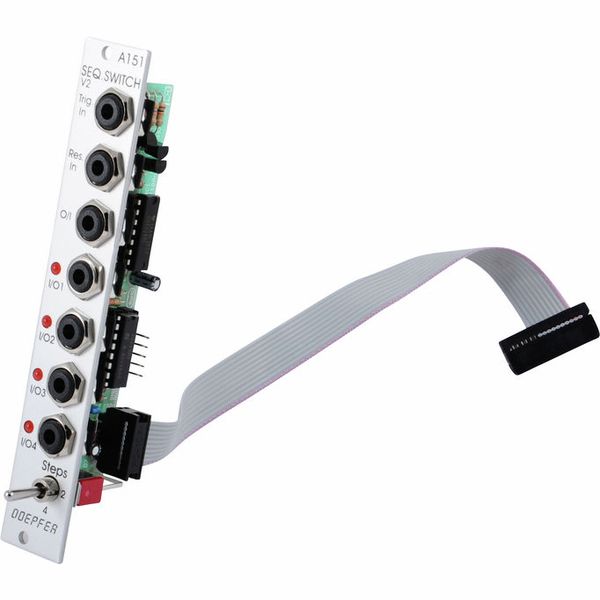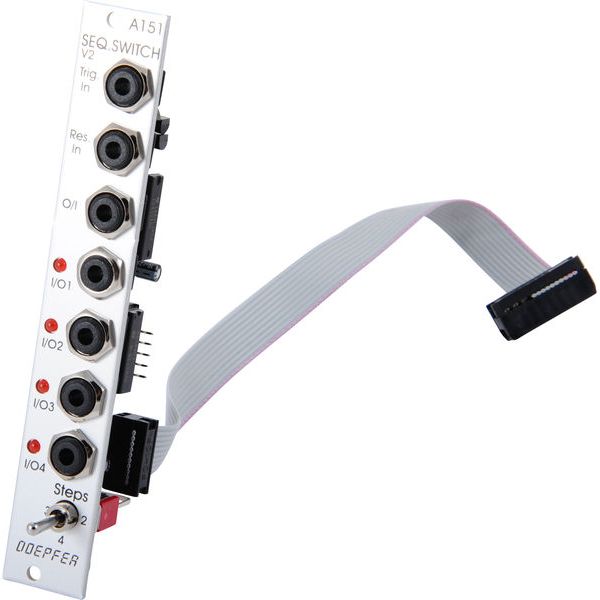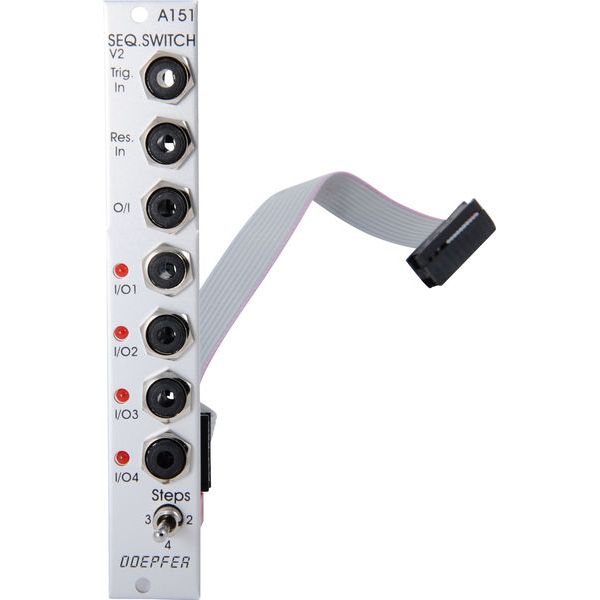If you are yet to get your head around what a sequential switch does and how you'd use it, the a151 can take an input and route it to up to four different outputs (or vice versa, can be used the opposite way round to route four inputs to one output), selected sequentially by sending a trig. There is also a reset trig input for jumping back to the first step (useful for resetting polyrhythms, for example).
"So what?", you may be thinking...
The awesome power of switches becomes apparent when you get your hands on one and start patching. Some ideas:
Put 4 different audio rate oscillator waveshapes to the four inputs and advance the steps at audio rate, you now have a nice complex wave coming out.
Put 4 constant cvs to the inputs and you have an up to 4 step cv sequencer, great for arpeggios when the ouput is mixed with a v/oct signal and sent to an oscillator.
Send multiple clocks to the 4 inputs, stepping through rhythmically, and send the output to some logic - incredibly complex drum patterns abound.
Send clock to input one and mult it to the step advance, leave inputs 2-4 empty - now you have a clock divider, division selected by the number of inputs switch!
Take your single synth input and send to four different fx configurations, step through them for each section of your song structure (verse/chorus/bridge etc) - switches are amazing for creating complex song structures that you just couldn't do without them.
And this all just with one 4 step switch - add another and the possibilities increase exponentially. Add its bigger brother, the a152 (which is 8 channel and addressed, so can pick the steps sequentially but also ad hoc as needed via cv) and its just insane how much you can do with it. Switches are a must have for complex patching, and you cant go wrong with doepfer for the price vs power vs quality.









